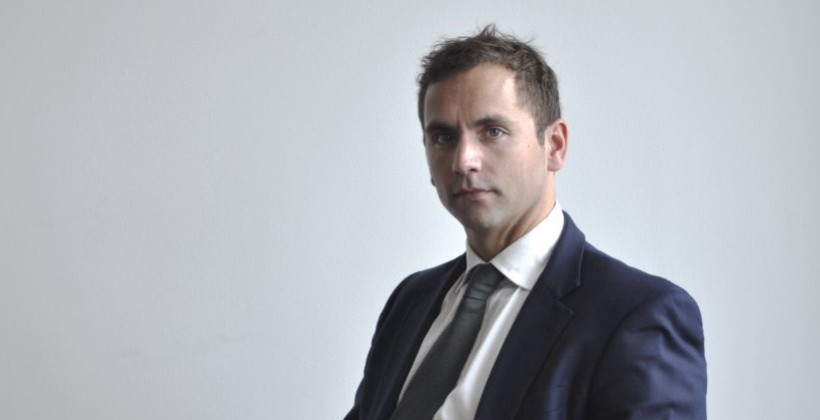I am delighted to be joining VideoWeek as a contributor, writing on the ever-expanding video and tech landscape.
By way of introduction, I was a City analyst covering the space for 20 years. During that time I have seen a lot of change, as new companies arise and others fade away.
It seems fitting, then, for my first column to look at how media and advertising will change in the next few year. Here are six of the biggest questions which I think are facing the industry right now, as well as a few of my own predictions:
1. What will happen in the markets and for valuations of assets, particularly in ad tech? Having been in the doldrums for a long time, ad tech is now seeing something of a resurgence in appetite from the public markets, which is driving a number of IPOs (whether through listings or via special purpose acquisition companies, also known as SPACs). Taboola, IronSource, AppLovin, Viant and PubMatic have all gone public in the past year, to name just a few.
Generally, but not always, the reception has been positively boosted by investors’ perceptions about potential future growth. That is likely to continue, at least until there is greater clarity on what happens with Google’s move to remove cookies, which I’ll discuss below.
And it’s not just public listings that will provide fuel for the fire. Private equity companies are certainly very active at the moment. In the first half of this year, PE has signed nearly 6,300 deals globally, which are cumulatively worth more than $500bn according to Refinitiv. And this isn’t likely to stop any time soon, especially given the likely continuation of cheap money looking for higher returns, which is funnelling money into PE. Expect a lot of activity.
2. Where will consolidation go in the European free-to-air broadcasting space? Driven by growing fears that the European broadcasters may be steamrollered by the global streaming giants, as well as a desire to support European content, I think previously ‘impossible’ deals are likely to gain approval.
In France, TF1 and M6 have already announced their planned merger, as have RTL and Talpa (on the TV side at least) in the Netherlands. RTL has also sold their Belgian business, and I wouldn’t be surprised if some of their other businesses in Croatia and Hungary went up for sale soon too. Meanwhile, Mediaset is likely to push through its own moves after the resolution of its conflict with Vivendi. And in the UK, the future of Channel 4 is centre stage, as the UK government strongly considers selling off the broadcaster.
3. What will happen on the regulatory, and increasingly political, fronts? This year has seen a step up in regulators’ moves to rein in the power of the big tech companies. But there is an obvious question of where this goes next, and then what the final outcomes look like. Associated with this is the fact that in several markets including the United States and India, tech and politics have become more and more intertwined, as issues relating to tech are increasingly politicised.
Many working in ad tech and broadcasting will be asking whether all these changes will actually benefit them. Certainly, Google’s announcement it was delaying killing off third-party cookies, in part because of soundings from the UK’s Competition and Markets Authority, was welcomed by much of the ad tech industry.
4. How will 5G transform the video space, if at all? Much is made of 5G’s potential, particularly in areas such as augmented and virtual reality (AR/VR). And its greater speeds offer the potential for even faster streaming services.
But how much of this do consumers actually want? While there has been wide adoption in China, there is a question of whether China is something of a unique case. It may be that consumer demand in North America and Western Europe is more muted. And outside of gaming, are there any interesting new consumer video products that 5G will unleash?
5. What will be the result of the death of third-party cookies, and Apple’s privacy changes on iOS devices? Google’s announcement that it is delaying the end of third party cookies until the end of 2023 brought a sense of relief to many working and ad tech. And I don’t think it’s out of the question that Google could further postpone its deadline if it feels the need.
But regardless, the debate which was generated and the search for alternative solutions made advertisers reassess how they spend in digital media.
My guess is that the result will be that the bigger players take more share. In particular, I think that big tech is likely to try to seize at least some of the revenues currently harvested by the ad tech companies – the prize is too lucrative to ignore. We are probably at the start of a very long fight.
6. What will happen to the multitude of streaming services? The merger of Discovery and AT&T’s media assets have raised questions over who will be next, with rumours swirling recently about a possible deal between NBCUniversal and ViacomCBS. But there are other questions facing the streaming services apart from further consolidation.
One big one is whether Netflix will be able to hold off the threat from the global content giants of Disney, Comcast et al? My feeling is Netflix is at a disadvantage because unlike the others, they do not have significant levels of cash flow to support a major fight (although their $230bn+ market capitalisation gives them the offer to raise capital via share issues). But perhaps the question should not be “who will be the winner(s) of the streaming wars?” but “will anyone win?” There is an argument to say that – based on the levels of content spending we’re seeing today – the streaming wars may only create losers, just to varying degrees.





